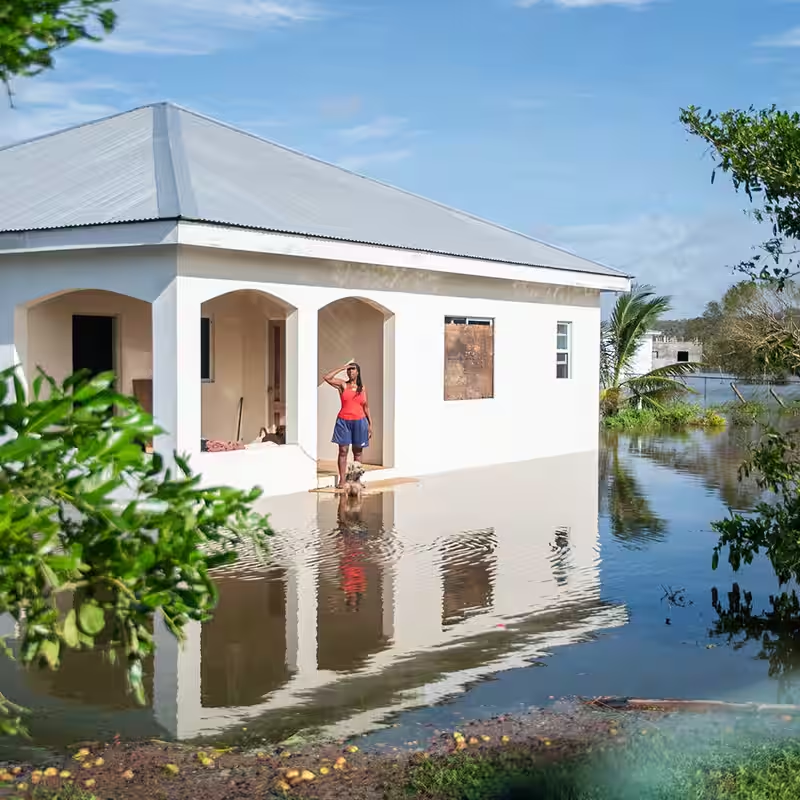Hurricane Melissa Devastates the Caribbean—Just as Predicted
Hurricane Melissa, a monstrous Category 5 storm with winds nearing 298 km/h (185 mph), slammed into Jamaica on Tuesday, leaving behind catastrophic damage. Power is out for nearly 75% of the island, and over a third of its population has been directly impacted. The storm then barreled into Cuba and Haiti—where at least 20 lives have been lost—and is now threatening the Bahamas and Bermuda.
This isn’t just another hurricane. It’s the embodiment of a long-ignored warning from the world’s most climate-vulnerable nations.
“The Reality Is That It Could All Be Wiped Out”
For decades, small island states have pleaded with wealthier nations to act on climate change. Now, their worst fears are materializing.
“Our countries don’t have the luxury to become more resilient to climate change,” said Michai Robertson, senior adviser to the Alliance of Small Island States and a native of Antigua and Barbuda—a nation still recovering from Hurricane Irma in 2017.
Robertson’s family was in Jamaica as Melissa made landfall. “In moments like this it really hits home that there’s this void and lack of leadership,” he told The New York Times.
Debt, Destruction, and Disinvestment
Caribbean nations like Jamaica, the Bahamas, Barbados, and Antigua and Barbuda now carry national debts nearly equal to their entire GDPs—largely due to repeated hurricane recovery costs. The International Monetary Fund estimates the region needs $100 billion to build true climate resilience.
| Country | Recent Major Hurricane | Estimated Damage |
|---|---|---|
| Jamaica | Hurricane Melissa (2025) | Still being assessed |
| Antigua and Barbuda | Hurricane Irma (2017) | $77B+ (region-wide) |
| Bahamas | Hurricane Dorian (2019) | $3.4B |
Broken Promises on Climate Finance
In 2021, wealthy nations pledged to double adaptation funding to $40 billion annually by 2025. Yet a new U.N. report released this week reveals that climate adaptation aid is actually declining.
The U.S., once a key contributor, has halted nearly all foreign climate aid since former President Donald Trump returned to office. The Biden administration had committed $3.1 billion for 2023—but those funds have evaporated under the current administration.
“Not only are wealthy countries retreating from fighting climate change,” Robertson said, “they’re not listening to us.”
What’s Next? The Brazil Climate Summit
Next week, global negotiators will gather in Brazil for the U.N.’s annual climate summit. The central question: Who pays for the damage already done—and the disasters yet to come?
Developing nations say they need over $1 trillion per year to both decarbonize and adapt. Without it, storms like Melissa won’t be anomalies—they’ll be the new normal.




